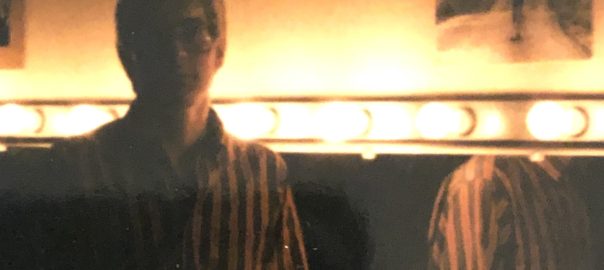Earlier this month, my computer broke. It was a long time coming, an inevitable journey for a laptop Apple now calls “obsolete.” Having already suffered everything from missing screws to intermittent lines showing the age of the screen, the slowness eventually made it impossible to complete a backup. My data at risk, I brought the computer in for care.
A week and a few hundred dollars later, a new solid state hard drive lived in my laptop with most of the age dusted off. However, the replaced drive wouldn’t release all of its data and cost me some applications and my bearings. Some of the bits have not yet returned. Some never will.
I’ve experienced other catastrophic computer failures in my life. Despite devoted backup practices, a screenplay was once eaten by the clicking of a SyQuest drive, and a similar thing happened with Iomega a few years later. In both cases, large chunks of my life disappeared, including my first decade of email activity. While I don’t need to every day, more than once I have wanted to look for something old, something that did not survive the waves of technology.
Much of my anxiety about this particular digital crisis stems from the death of my friend, Jeff. The last complete backup I was able to get came in July. I was therefore confident I would avoid starting completely from scratch but assured that no new writing or other correspondence since would be recovered from that backup. Many of our thoughts and interactions are on social media, but some files I wouldn’t be able to recreate.
Death never disrupted my home. Meaning, I have never had the experience of walking past a silent room knowing someone I love used to occupy that space. TV and movies tell me this is a thing the bereaved have to face: what to do with the silent room.
One of the things I have done over the past few weeks is to look at old yearbooks, the social media of my youth. I paged through surviving yearbooks from Freshman, Sophomore and Senior years—what happened to my Junior year, I don’t know—looking at pictures of Jeff and for the words he left for me. This, and a handful of artifacts preserved in some Tupperware box, are the tangible proof of our connection. As long as I keep them close and don’t write on them further, they remain as they were and always will be.
In the decades that followed high school—constituting the bulk of our relationship—the artifacts are mostly digital. While J was always a good letter writer, we embraced email to embrace each other. From politics to entertainment, these remote exchanges left a sizable digital footprint. I don’t have many pictures of us together as adults, but I had the emails. Like the yearbooks, to preserve them I only had to keep them safe.
As I type, I still hope to read them again. Most of my email was sent through a POP account, which ultimately means that the only copy likely in existence is what was on my laptop. Through much effort, I believe I have my email files back on my laptop, but they remain invisible to me when I open the application to view them. Leaving them in that state for the moment, I draw comfort in the uncertainty. I don’t know if they are forever lost, which is better than knowing for sure.
These bits comprise the digital life I have created with Jeff. Every time I open my laptop, I walk past this virtual room, knowing there is an open invitation to walk inside and sit. I can venture in and see him exactly as he was. I can keep my memories fresh. Maybe that is what I fear most about losing these messages: Without them, my memories will fade and Jeff will disappear.
There was a moment in this process of restoration when I launched my computer and saw nothing familiar. My Chrome browser lost all of its open tabs. Many applications reset to scratch. Once I found where that information lived—and realized the techs had not restored a hidden directory—I was able to get those things back.
I launched Chrome to check my work. In my Facebook window, a chat with Jeff reappeared, right where I left it. It contained the last interaction I had with him. I told him I loved him, he told me he loved me, and we ended with a joke. In this new moment, I am relieved to see his room still exists. I read it as a new message saying everything will be all right.
Today, that’s enough. I’m walking away knowing he’s in there, somewhere.
